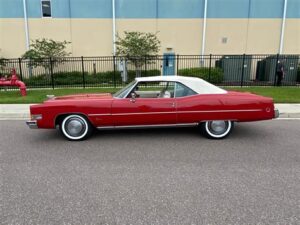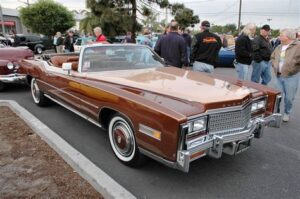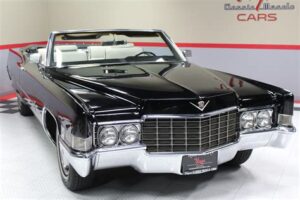Are you looking to enhance your 2003 Toyota Corolla’s performance and efficiency? Your vehicle’s catalytic converter plays a crucial role in reducing harmful emissions, improving fuel economy, and ensuring compliance with environmental regulations. Recognizing when it’s time for a replacement can save you from potential engine issues and costly repairs down the road. In this article, we delve into the essential aspects of the catalytic converter for the 2003 Toyota Corolla, from understanding its function to identifying common signs of wear and tear. We’ll also guide you on how to choose the right replacement converter and detail installation steps, ensuring your vehicle runs smoothly for years to come. Let’s unlock the secrets of maintaining your Corolla’s efficiency and environmental integrity!
Understanding The Function Of Cadillac Converter In 2003 Toyota Corolla
The cadillac converter is a crucial component of the exhaust system in your 2003 Toyota Corolla, playing a vital role in reducing harmful emissions. Specifically, it converts toxic gases produced by the engine into less harmful substances before they are released into the atmosphere.
Here’s how the cadillac converter functions:
| Toxic Substance | Converted To |
|---|---|
| Carbon Monoxide (CO) | Carbon Dioxide (CO2) |
| Hydrocarbons (HC) | Water (H2O) and Carbon Dioxide (CO2) |
| Nitrogen Oxides (NOx) | Nitrogen (N2) and Oxygen (O2) |
In simple terms, the cadillac converter acts as a filter, helping to keep the environment cleaner by minimizing the amount of harmful emissions from your vehicle. It works best when the engine is operating at optimal temperatures, and a well-maintained cadillac converter can improve both fuel efficiency and performance.
Regular checks and potential replacements of the cadillac converter are advisable to ensure that it functions effectively, prolonging the life of your 2003 Toyota Corolla and adhering to emission regulations.
Common Signs Your Cadillac Converter Needs Replacement
Being aware of the signs that indicate your cadillac converter may need replacement is essential in preventing further damage to your 2003 Toyota Corolla. Here are some common indicators to watch for:
| Sign | Description |
|---|---|
| Decreased Engine Performance | If you notice a drop in acceleration or power, it may be due to a faulty cadillac converter. |
| Poor Fuel Economy | When your car starts consuming more fuel than usual, it could be a sign of a failing cadillac converter. |
| Check Engine Light | A illuminated check engine light should always be investigated, as it may signify an issue with the cadillac converter. |
| Unusual Exhaust Emissions | Excessively dark or smelly exhaust fumes are a sign that your cadillac converter may not be functioning properly. |
| Rattling Noise | A rattling or clanging noise from under the vehicle may indicate that the internal components of the cadillac converter are damaged. |
If you experience any of these signs, it’s important to have your cadillac converter inspected by a qualified mechanic. Timely replacement can prevent further complications and maintain the overall health of your 2003 Toyota Corolla.
How To Choose The Right Cadillac Converter For Your Corolla
Selecting the appropriate cadillac converter for your 2003 Toyota Corolla is crucial for ensuring optimal performance and compliance with emissions regulations. Here are some important factors to consider when making your choice:
By taking these factors into account, you can choose the right cadillac converter for your 2003 Toyota Corolla, ensuring it runs smoothly and efficiently while meeting emissions standards.
Installation Steps For A New Cadillac Converter On 2003 Toyota Corolla
Installing a new cadillac converter on your 2003 Toyota Corolla can significantly improve your vehicle’s performance and emissions. Follow these steps for a successful installation:
-
Gather Required Tools and Materials:
Before starting, ensure you have the following tools and materials:
- New cadillac converter
- Socket wrench set
- Jack and jack stands or ramps
- Oxygen sensor socket (if applicable)
- Penetrating oil
- Safety goggles and gloves
-
Prepare Your Vehicle:
Park your Corolla on a flat surface. Engage the parking brake and disconnect the negative battery terminal to prevent any electrical issues.
-
Lift the Vehicle:
Using a jack, lift the front of the vehicle and secure it with jack stands. This will provide you with adequate space to access the cadillac converter.
-
Locate the Old Cadillac Converter:
The cadillac converter is typically located between the exhaust manifold and the muffler. Inspect the connections to ensure you know where to disconnect it.
-
Remove the Old Cadillac Converter:
Apply penetrating oil to bolts and connections, allowing it to sit for a few minutes. Then, using the socket wrench, carefully remove the bolts holding the old converter in place.
-
Install the New Cadillac Converter:
Position the new cadillac converter properly and align it with the exhaust system. Secure it with bolts, ensuring it is tight to prevent any exhaust leaks.
-
Reconnect the Oxygen Sensors:
If your converter has oxygen sensors, reconnect them carefully. Ensure that they are secured and not damaged during removal or installation.
-
Lower the Vehicle:
Once everything is installed, remove the jack stands and lower the vehicle back to the ground.
-
Reconnect the Battery:
Reconnect the negative terminal of the battery. Start the engine and listen for any unusual noises or exhaust leaks.
-
Test Drive:
Take a short drive to ensure that the new cadillac converter is functioning correctly. Pay attention to performance and emissions-related indicators.
Following these steps carefully will ensure a proper installation of your new cadillac converter for a smoother and more efficient driving experience in your 2003 Toyota Corolla.
The Importance Of Cadillac Converter Maintenance And Efficiency
Ensuring the proper maintenance of your cadillac converter in a 2003 Toyota Corolla not only enhances vehicle performance but also contributes significantly to the overall efficiency and longevity of the engine. A well-maintained cadillac converter plays a pivotal role in controlling emissions, which is crucial for meeting environmental standards and regulations.
Regular inspections and timely maintenance can help identify issues before they lead to complete failure. Signs of a failing cadillac converter include reduced engine performance, poor fuel economy, and the illumination of the check engine light. Addressing these concerns promptly can prevent costly repairs and maintain optimal function.
Additionally, proper maintenance of the cadillac converter can improve fuel efficiency, as a blocked or degraded converter can lead to increased back pressure in the exhaust system. This strains the engine, requiring it to work harder and consume more fuel. In contrast, a functional converter allows for smooth exhaust flow, promoting better fuel efficiency and reducing overall emissions.
Prioritizing the maintenance of your cadillac converter not only ensures compliance with environmental laws but also enhances the vehicle’s performance and lifespan. Regular check-ups, cleaning, and replacement when necessary are essential practices every Toyota Corolla owner should adopt for optimal vehicle health.
Frequently Asked Questions
What is a catalytic converter?
A catalytic converter is an essential component of a vehicle’s exhaust system that helps reduce harmful emissions by converting them into less harmful gases.
Why is the catalytic converter important for a 2003 Toyota Corolla?
The catalytic converter in a 2003 Toyota Corolla is crucial for meeting emission standards and ensuring the vehicle runs efficiently while reducing its environmental impact.
How can I tell if my 2003 Toyota Corolla’s catalytic converter is failing?
Signs of a failing catalytic converter include a decrease in engine performance, poor fuel economy, a check engine light, and unusual noises from the exhaust system.
What are the common symptoms of a bad catalytic converter?
Common symptoms include sluggish acceleration, a strong smell of sulfur, engine misfires, and excessive exhaust smoke.
How much does it cost to replace a catalytic converter in a 2003 Toyota Corolla?
The cost to replace a catalytic converter can vary but typically ranges from $800 to $2,500, depending on the part’s quality and whether you choose to hire a mechanic.
What should I do if my 2003 Toyota Corolla’s catalytic converter gets clogged?
If you suspect a clogged catalytic converter, it’s best to have a mechanic inspect it. They may recommend cleaning, repairing, or replacing the converter.
Can I drive my 2003 Toyota Corolla with a faulty catalytic converter?
While it may be possible to drive with a faulty catalytic converter, it is not advisable, as it can lead to further engine damage, reduced efficiency, and increased emissions.





